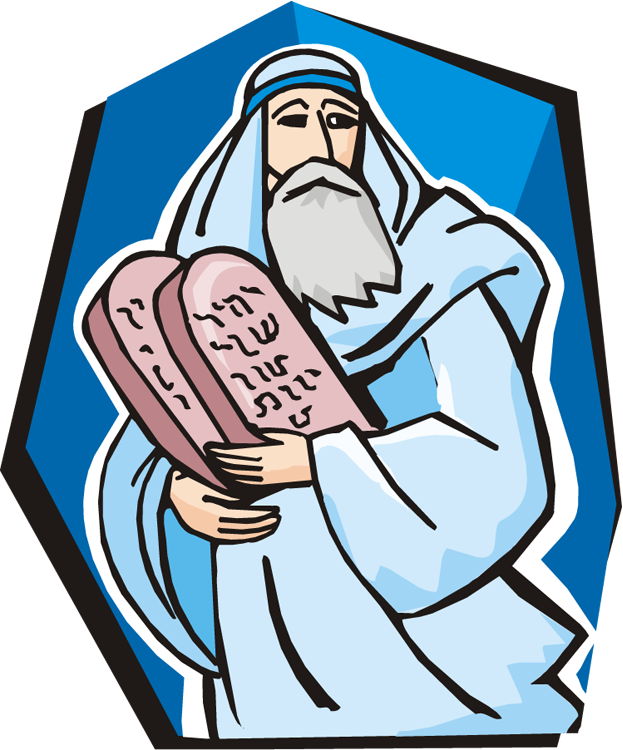
Deuteronomy 1
Deuteronomy 1:1, Words.The Hebrew word is devarim, which is the plural of the generic Hebrew word for word, which is devar/debar,and is the Hebrew name for the last book of the Torah. Devar is related to several other well-known Hebrew words such as midbar/wilderness (Exod 7:16; Num 1:1; 14:33; Deut 1:1,31; 2:7; 8:2,16), b’midbar/in the wilderness (Num 1:1),and deveer/oracle, sanctuary, holy of holies (1 Kgs 6:16; 2 Chr 5:7,9; Ps 28:2). Look up these words in your Bible to see how they are used. How are they related to each other with respect to hearing or being led by the Word of Elohim?
Deuteronomy 1:1, Wilderness…plain…Red Sea…Paran…Tophel and Laban…Hazeroth…Dizahab. Seven names are mentioned here, which are code words for major sins that Israel committed against YHVH while wandering in the wilderness. The younger generation may have been too young to remember what happened at those places, but Moses was giving them a history lesson, so they wouldn’t repeat the mistakes of their forefathers as they were about to enter the Promised Land. (See below for a discussion of the sin that each of these names represents.) If one were to quickly read over these words and fail to realize that they are code words or Hebraisms representing historical events, one would pass over some rich Torah treasure. For Americans, words like 911, Ground Zero, Katrina, Pearl Harbor, Christmas, D-Day, JFK and FDR conjure up all sorts of images and emotions. This was true of the Israelites when they heard the names in verse one.
Deuteronomy 1:2, Eleven days. Horeb (Mount Sinai) was only an 11 days’ journey to the edge of the Promised Land (Kadesh Barnea), yet because of Israel’s bad conduct (disobedience to YHVH’s commands, lack of trust and faith in YHVH’s Word evidenced by complaining, murmuring and even outright rebellion) they were made to wander in the wilderness for 40 years. What is holding you back from going forward in your spiritual walk? What sin, what fear, what wrong beliefs or false religious concepts are you refusing to let go that are hindering you? If you are serious about serving YHVH, it is time to repent and go onward and upward in Yeshua!

Deuteronomy 1:5, Moses began to declare this law (KJV). This is a poor translation of the Hebrew. A better translation would be: “Moses began to explain this law [Torah]…” (NKJV), or “Moses undertook to expound this law [Torah] … “ (NAS), or “Moses began explaining the Torah …” (ASET). To whom was Moses explaining the Torah? (Read verse 39 and cp. with Deut 6:7). Moses was the dutiful parent faithfully teaching Torah to the younger generation about to enter the Promised Land. How are you preparing the young people in your life to enter into the Promised Land of YHVH’s eternal kingdom?
Deuteronomy 1:11, Add to you a thousand times yourselves. If the children of Israel numbered between several million (there were approximately 600,000 men of fighting age numbered among the Israelites), then when was this prophetic promise of YHVH ever fulfilled in Israel’s history? Where are the several billion Israelites (1000 times two to three million) today? (See Gen 26:4; 32:12; Exod 32:13 cp. Hos 7:8; 8:8; Eph 2:11–19.)
Deuteronomy 1:12–13, Choose…men. Choosing leaders to help govern Israel and to maintain the peace was of first priority because the people were prone to strife and complaining. Without a dispute and conflict resolution plan in place, the nation of Israel would have been one of total anarchy, strife and confusion.
Deuteronomy 1:13 and 15, Provide for yourselves distinguished men, who are wise, understanding, and well known … so I took … of your tribes distinguished men, who were wise and well known. Compare the two lists. What character trait is not listed in the second list? Why? The word understanding (biyn, Strong’s H995/TWOT 239) means “discerning, perceptive, discreet, intelligent, observant and prudent.” Why did Moses have such a difficult time finding understanding men to be leaders in Israel? Are people any different today? Only two men out of hundreds of thousands had understanding: Caleb and Joshua.

Deuteronomy 1:26–28, Moving forward in the face of obstacles. Many times in our spiritual walk we are just at the point of spiritual breakthrough, but we receive an evil report about some spiritual giants that is blocking our forward movement and our resolve to advance melts. It seems sometimes that if we could just see what the future holds for us that it would be much easier for us to go forward! Yet Yeshua said, Blessed are those who haven’t seen, yet still believe in YHVH’s promises (John 20:29). Do you have what it takes to go on without being deterred by the world, the flesh and the devil? How can one go forward in faith if one cannot see where one is going? It gets down to personal and intimate relationship with your Heavenly Father, through Yeshua. He directs us through his Spirit. Can you hear his voice with your spirit when he tells you, “This is the way, walk you in it,” (Isa 30:21)?
Continue reading
